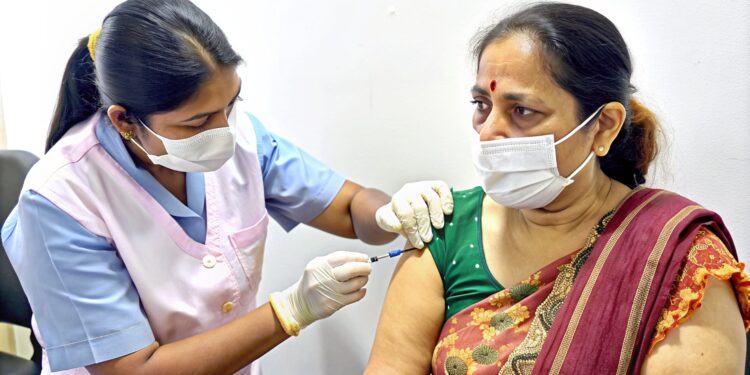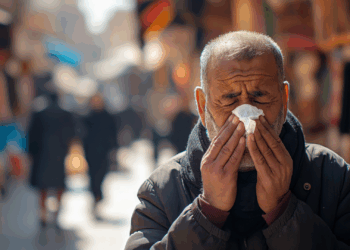Growing older brings wisdom, experience, and a deeper appreciation for life. To enjoy these golden years to the fullest, looking after one’s health is essential. Regular health screenings and vaccinations can help detect problems early, prevent illnesses, and maintain independence. Today, healthcare offers wonderful tools that empower older adults to lead active, vibrant lives.
Here’s a guide to the top five health screenings and top five vaccinations every older adult should prioritise.
Top 5 Health Screenings Every Older Adult Should Get
Early detection can make all the difference when it comes to maintaining good health. Regular screenings ensure that any potential issues are caught early, often before symptoms even appear. Here are the key tests that are highly recommended:
1. Breast and Colorectal Cancer Screening
Cancer is more likely to develop with age, but early detection makes treatment much more effective. Breast and colorectal cancers are among the most common, yet they are also among the most treatable when caught early.

Join Now >
- Breast Cancer: Women aged 50 to 74 should have a mammogram every two years, or more frequently if they have a family history or other risk factors.
- Colorectal Cancer: Both men and women should begin screening at age 45 or 50. This might include stool tests, colonoscopy, or other procedures based on individual risk factors.
These screenings can detect abnormal growths before they become cancerous, giving people the best chance at recovery and continued wellness.
2. Diabetes (Blood Sugar) Screening
Type 2 diabetes often develops slowly and silently, especially in older adults. Uncontrolled diabetes can damage the eyes, kidneys, nerves, and heart.
- Screening involves fasting blood sugar tests or Hba1c blood tests.
- Adults over 60 should have their blood sugar checked regularly, especially if they are overweight or have a family history of diabetes.
Simple changes in diet, activity levels, and medication can keep diabetes under control and reduce complications.
3. Osteoporosis (Bone Density) Screening
As people age, bones become thinner and weaker. Osteoporosis increases the risk of fractures, which can lead to long-term disability and loss of independence.
- A bone density test (DEXA scan) is recommended for women over 65 and men over 70, or earlier if there are risk factors such as a history of fractures.
- Adequate calcium and vitamin D intake, along with weight-bearing exercise, can help protect bone health.
4. Prostate-Specific Antigen (PSA) Test (For Men)
The PSA test can help detect early signs of prostate cancer, one of the most common cancers in men.
- Men over 50 should speak to their doctor about the pros and cons of PSA testing.
- Those with a family history of prostate cancer may benefit from earlier or more frequent testing.
While not every man will need regular PSA testing, being informed and discussing options with a healthcare provider is key.
5. Cardiovascular Disease Screening
Heart disease remains one of the leading causes of death among older adults. Early detection of risk factors such as high blood pressure, cholesterol, and abnormal heart rhythms can prevent serious events like heart attacks or strokes.
- Screenings include blood pressure checks, cholesterol tests, and sometimes ECGS.
- These tests should be done annually or as advised by a doctor.
Maintaining a heart-healthy lifestyle with proper nutrition, regular walking, and stress management can significantly lower risks.
Top 5 Vaccinations Every Older Adult Should Get
Vaccinations aren’t just for children. As we age, our immune system becomes weaker, making us more vulnerable to certain infections. Vaccinations can prevent serious illnesses and even hospitalisations. Here are the five most important vaccines for older adults:
1. Influenza (Flu) Vaccine
The flu can lead to severe illness and complications in older adults, including pneumonia and hospitalisation.
- A flu shot is recommended every year, preferably before flu season begins in October or November.
- It helps reduce the severity of the illness and protects those with weakened immune systems.
2. Recombinant Zoster Vaccine (Shingles)
Shingles is a painful rash caused by the reactivation of the chickenpox virus. It can lead to post-herpetic neuralgia, a long-term nerve pain condition.
- The shingles vaccine (RZV) is recommended for adults over 50.
- Even those who’ve had shingles before can benefit from vaccination
3. Pneumococcal Vaccine
Pneumonia, bloodstream infections, and meningitis caused by the pneumococcal bacteria can be life-threatening in older adults.
- There are two types of pneumococcal vaccines: PCV13 and PPSV23. Doctors will advise the right schedule based on health history.
- These vaccines can be given a few years apart and may only need to be administered once.
4. Measles, Mumps, and Rubella (MMR) Vaccine
While most adults received the MMR vaccine in childhood, some may not have full immunity.
- An MMR booster may be recommended, especially for those travelling or during outbreaks.
- A simple blood test can confirm immunity.
5. Tetanus, Diphtheria, and Pertussis (Tdap or Td)
Tetanus is a serious bacterial infection, and pertussis (whooping cough) can be dangerous for older adults and the young grandchildren they care for.
- A booster is recommended every 10 years.
- The Tdap version adds protection against whooping cough, which can still circulate in communities.
Making Health a Priority
Caring for your health through regular screenings and timely vaccinations is one of the most empowering things you can do in your later years. When health conditions are detected early or infections are prevented altogether, it means more energy for the things you love. Personalised advice, based on your medical history and lifestyle, can help you stay on top of your health goals.
Conclusion
Growing older doesn’t mean slowing down; it means taking smarter steps to protect your health and well-being. Regular health screenings and timely vaccinations are two of the most effective ways to stay ahead of potential health concerns and continue living an active, independent life.
By staying informed and working closely with your healthcare provider, you can make confident decisions that safeguard your future. Whether it’s checking your blood pressure, updating your vaccinations, or simply being aware of your body’s needs, every small action counts.








